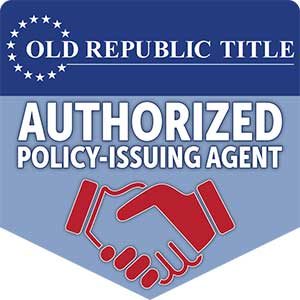Our clients often ask us what is and is not covered by title insurance. Here is a helpful breakdown of what title insurance is and what is covered in New Jersey.
What is Title Insurance?
If you are looking to buy a home and are unfamiliar with title insurance, it is probably a good idea to become familiar with it. Buying a home is a big financial decision and working with a title insurance provider will provide you security and peace of mind in the long run. We’ll break down some of the basics of what you should know about title insurance and what it can protect you from.
Types of Title Insurance
There are two different types of title insurance. One offers monetary and legal protection to owners and the other is for lenders. Often, in order to ensure everyone involved in the transaction is adequately shielded from risk, both owners’ title insurance and lenders’ title insurance will be necessary.
Lenders’ Title Insurance (Loan Policy)
In nearly all cases, lenders will require the borrower to purchase lenders’ title insurance, called a loan policy, so that the lender’s interest in the property is protected until your loan is paid off or refinanced. It is usually based on the dollar amount of the loan and decreases as you pay down your loan until it eventually disappears as the loan is paid off. This title policy typically comes after a property title search is completed, so while the policy only protects the lender, it does offer some assurance to the buyer. These can include extended policies as well.
Owners’ Title Insurance (Owner’s Policy)
The other type of title insurance is owners’ title insurance, also called an owner’s policy. This is typically purchased by the buyer in order to protect themselves against title problems that may come to light in the future. Owner’s policies are usually issued in the amount of the real estate purchase for a one-time fee that lasts for as long as you have an interest in the property. Basically, they provide assurance that the title insurance company will help you monetarily and defend you legally if need be in the event that an unforeseen or hidden title problem surfaces. Owners’ title insurance also has the option for extended policies.
What Does Title Insurance Cover?
Once a property title search has been completed and ownership of the property has been verified, the homeowner will then be issued title insurance. This insurance protects both property owners and lenders from losing the property due to any title defects such as liens, lawsuits, unpaid taxes, fraud, or errors as well as covering the costs of defending against future, unforeseen claims on the property.
Some of the things that a typical title insurance policy will cover include:
- Ownership by another party
- Incorrect signatures on documents, as well as forgery and fraud concerning title documents
- Defective recordation (flawed records or record-keeping)
- Restrictive covenants (terms that reduce value or enjoyment), such as unrecorded easements
- Encumbrances or judgments against property, such as outstanding lawsuits or liens
Ideally, a property title search will weed out any of these issues and the title insurance will act as a safety net. However, there are situations where past occurrences with the property rear up and at that point you will be glad you have a title insurance policy in place. Title insurance is a one-time payment that protects you and your family’s ownership of the property for as long as you own it.
What Does Title Insurance Not Cover?
While not all title policies cover the same things, there are a number of items that are unlikely to be covered in a general title insurance policy. This includes:
- Any defects created after the issuance of the policy, or defects that you create.
- Issues arising as the result of failing to pay your mortgage.
- Issues arising as the result of failing to obey the law or certain covenants.
- Specific taxes and assessments.
- Violating zoning or building ordinances related to land use, improvements, or environmental protection.
- Restrictive covenants that limit the use of the property.
- Condemned land.
- Claims from others who might have rights to your property if a body of water (river, stream, lake, etc.) is on or near the property.
The Risks of Going Without Title Insurance
Going without title insurance exposes the parties involved in the real estate transaction to serious risk. A common example is a home buyer purchasing a home and after closing, finding out that the previous owner had unpaid property taxes. Without title insurance, the burden to pay those taxes falls squarely on the shoulders of the new owner. If they cannot pay, they risk losing their home to whoever those unpaid property taxes belong to.
It’s always important to communicate with your title company about these potential issues and to make sure you fully understand what is and is not covered under your policy. If you have any other questions about what title insurance does or does not cover, contact Scott Title in Shrewsbury, NJ today.





